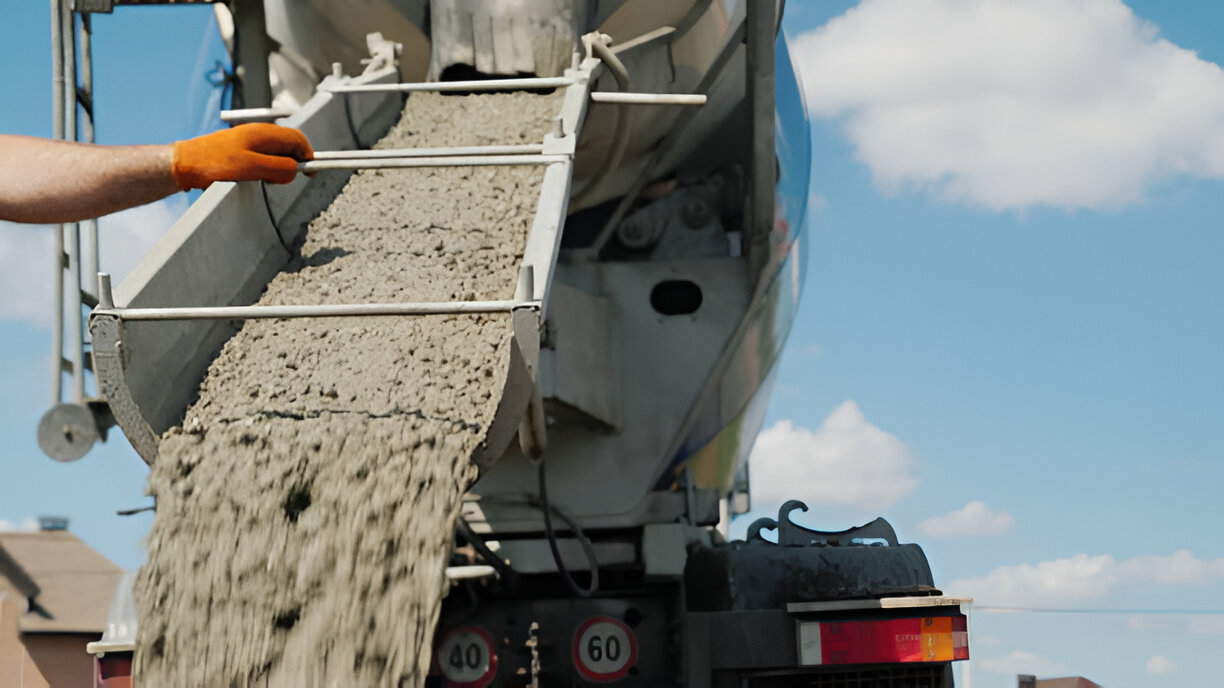
Understanding concrete costs in 2024 is crucial for anyone planning a construction project. Whether you’re building a new driveway, patio, or foundation, knowing the current prices helps you budget effectively and avoid unexpected expenses.
This comprehensive guide will provide you with all the essential information about concrete prices in 2024. We will explore:
By the end of this guide, you’ll have a clear understanding of how to estimate concrete costs accurately. This will help you make informed decisions and ensure your project stays within budget.
Understanding the average cost of concrete is crucial for budgeting any construction project. In 2024, the national average cost of concrete is around $125 per cubic yard. Prices typically range from $110 to $165 per cubic yard, depending on various influencing factors.
Here are some key factors that can affect the cost of concrete:
Taking these factors into account helps in making an accurate cost estimate for your concrete needs in 2024.
Several factors influence the overall price of concrete projects. These can vary significantly based on specific circumstances and conditions.
Short load fees are additional charges applied when ordering a smaller quantity of concrete than what is typically considered a full truckload. Concrete suppliers often set minimum load requirements to optimize their delivery efficiency. Ordering less than the minimum may incur extra costs, impacting your project budget.
The distance between the construction site and the mixing plant also plays a crucial role in determining concrete costs. Longer distances increase transportation expenses, which suppliers pass onto customers. This can lead to higher prices, especially in remote or less accessible areas.
Timing your concrete delivery can affect the cost as well. Suppliers may charge premiums for deliveries scheduled during weekends or holidays due to increased labor costs and logistical challenges. Planning your project schedule carefully can help avoid these additional fees.
Understanding these factors allows for more accurate cost estimation and better budgeting for your concrete projects. Each element—short load fees, distance from the mixing plant, weekend/holiday delivery—can significantly impact the final price, so it’s essential to consider them when planning.
Understanding the different types of concrete is essential for accurate cost estimation. Each type has its own unique properties and price points.
Standard Concrete:
High-Strength Concrete:
Stamped Concrete:
Self-Consolidating Concrete:
Shotcrete:
Pervious Concrete:
Accurately estimating concrete driveway costs in 2024 involves considering several factors. Here’s a detailed guide to help:
Several variables impact these estimates:
An example: A standard 500 sq ft driveway with basic concrete might cost around $4,250 ($8.50 per sq ft). Adding decorative stamping and reinforcement could push the total to approximately $6,750.
Using these guidelines helps in making informed decisions and budgeting effectively for your concrete driveway project.”
Understanding the fluctuations in concrete prices is crucial for accurate cost estimation. Several factors can cause significant changes in the price of concrete over time:
When the supply of essential components like cement, sand, and gravel are low, prices tend to rise. These shortages can be caused by natural disasters, geopolitical events, or manufacturing delays.
The cost of transporting raw materials to the mixing plant and then delivering the finished product to the construction site influences concrete prices. Fuel costs, logistical challenges, and distance all play a role in determining these expenses.
Broader economic trends impact concrete prices as well. Inflation rates, currency exchange fluctuations, and overall market demand for construction materials can drive costs up or down.
For example, a surge in fuel prices will increase transportation costs, which will then reflect in higher concrete prices. Similarly, if there is a high demand for construction materials globally, local suppliers might raise their prices due to increased competition for resources.
Keeping an eye on these market conditions helps in anticipating potential price changes and planning your budget accordingly.
Managing concrete costs effectively starts with a few strategic steps. To help you navigate these, consider the following tips:
By implementing these strategies, managing concrete costs becomes more straightforward and less burdensome on your budget.
Obtaining precise cost estimates for concrete projects is crucial. Several resources can assist in this process:
Gordian’s RSMeans Data is a comprehensive construction cost database. It provides detailed information on the costs associated with various construction materials, including concrete. By leveraging this resource, you can gain access to up-to-date pricing and make informed decisions about your concrete projects.
Forbes Home offers valuable insights into the average costs of concrete driveways. This resource breaks down the factors that influence these costs, such as size, thickness, and additional features. Utilizing Forbes Home can help you understand what to expect when budgeting for a new driveway.
Lawn Love is another excellent platform that provides information on average concrete costs. It also includes tips for reducing expenses. By consulting Lawn Love, you can find ways to manage your project budget more effectively, ensuring you get the best value for your investment.
These resources are invaluable for anyone looking to estimate concrete costs accurately. They offer detailed data and practical advice to help you navigate the complexities of pricing in 2024.
Understanding concrete costs in 2024 requires considering all relevant factors. Prices vary based on location, type of concrete, and project size. The average cost is around $125 per cubic yard, but it can range from $110 to $165 per cubic yard.
Key factors include:
For concrete driveways, costs range from $2,100 to $7,800 depending on size and features. Market fluctuations due to material shortages and transportation expenses can also impact prices.
Thorough research and leveraging multiple sources are crucial for accurate quotes. Utilize resources like Gordian’s RSMeans Data, Forbes Home, and Lawn Love for comprehensive information.
Ensuring budgetary success involves:
By taking these steps, you can effectively manage and reduce concrete costs in 2024.

Greater Seattle Concrete is one of the leading concrete contractors in Seattle, WA, with an established reputation for innovation and a commitment to exceeding client expectations.